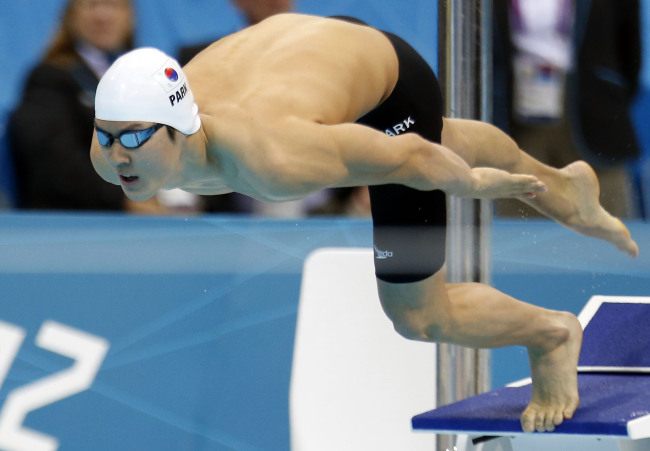The world’s top sports tribunal has ruled that banned South Korean swimmer Park Tae-hwan is eligible for this year’s Summer Olympics.
The Court of Arbitration for Sport on Friday handed down a decision in favor of Park following his appeal against the Korean Olympic Committee over the latter’s ban on the athlete for the Rio de Janeiro Summer Games.
 |
South Korean swimmer Park Tae-hwan (Yonhap) |
The CAS said the KOC rule barring athletes from competing for South Korea for three years after the end of their doping suspension was invalid.
The ruling gives Park, the 2008 Olympic champion in the 400 m free, barely enough time to make the national team. He was left off the preliminary roster announced on May 11, even after meeting Olympic qualifying times in the 100 m, 200 m, 400 m and 1,500 m freestyle at the national team trials in April. The deadline to submit the final roster to FINA, the international swimming governing body, is Friday local time in Lausanne, Switzerland.
Park tested positive for testosterone in October 2014, and his 18-month ban, which began retroactively in September 2014, ended in March this year.
Last week, a Seoul court also ruled Park eligible to make the national team for Rio, saying the KOC had no grounds to ban him from the Olympics.
The local court granted an injunction requested earlier by Park’s legal representatives to secure the binding power of a CAS ruling in favor of the swimmer.
The KOC had said it would respect the local court’s decision and would take necessary steps after the CAS decision.
For months, the KOC had defied mounting public pressure and maintained it wouldn’t make any exception to its rule, even for an iconic athlete like Park, the only South Korean swimmer with an Olympic medal and a world championship.
It was panned for unfairly punishing Park twice for the same offense, and its critics said the principle of double punishment runs counter to international standards.
The CAS decision on Park shouldn’t come as a surprise, given a precedent on double punishment.
In 2011, the CAS ruled against the International Olympic Committee’s “Osaka Rule,” which barred athletes with a doping suspension of at least six months from competing in the following Olympics. The CAS said the Osaka Rule, adopted in 2008, was “a violation of the IOC’s own statute and is therefore invalid and unenforceable.” (Yonhap)








